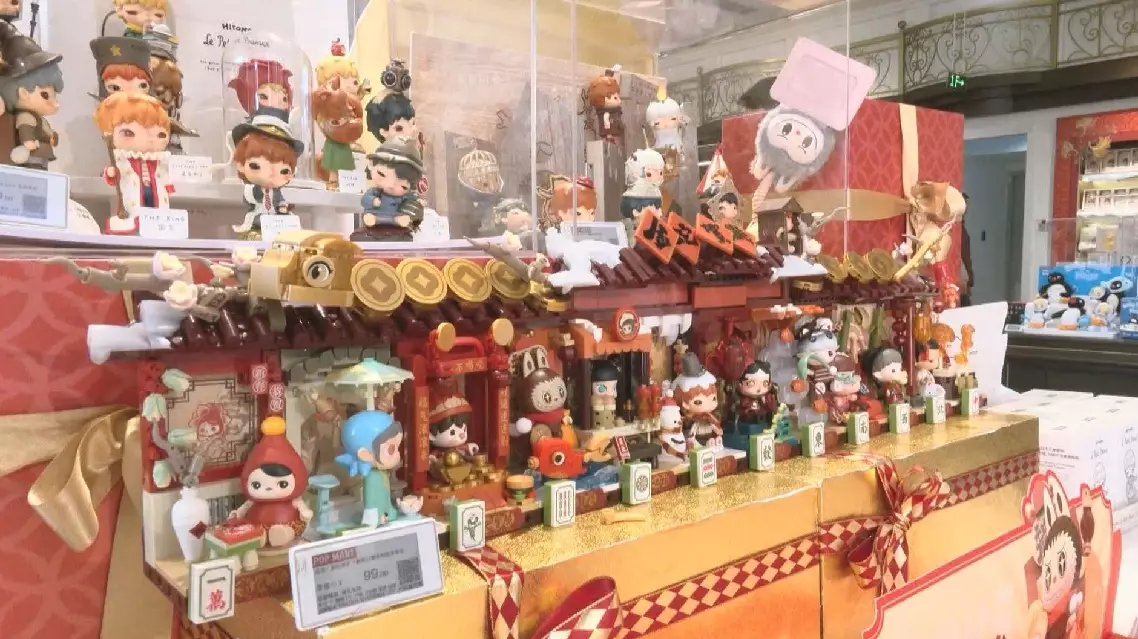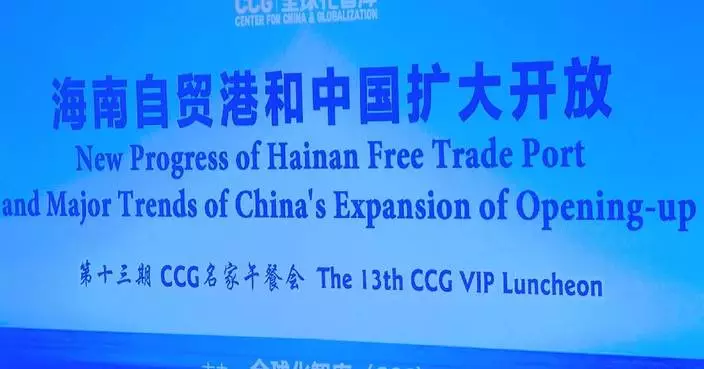China's young consumers are redefining the concept of retail therapy, using their purchasing power to prioritize emotional wellbeing and fuel a thriving 'emotional economy' that's changing the face of the country's consumer market.
As a way to navigate the fast-paced and stressful modern life, China's youth are increasingly spending on goods and experiences that uplift their mood, giving rise to a phenomenon known as the 'emotional economy'.
Yao Xin, a freelancer in Beijing, has turned his passion for collecting figurines into a source of emotional fulfillment. His shelves are filled with thousands of figurines based on characters from his favorite childhood cartoons, with each character triggering a fond memory.
"Many people would say, 'What's the point of buying these?' But for me, the greatest purpose is simply making myself happy. Everyone has their own interests, and these interests become a source of emotional support and hope. They also give you a stronger sense of motivation at work. You begin to think, 'I'm working today so I can buy the toys I love this weekend.' It's a huge emotional boost," Yao told China Central Television (CCTV).
Yao's choice points to a major shift in the Chinese consumer market. According to a research report on youth consumption trends in 2024, nearly 30 percent of respondents said they would buy goods that can provide emotional value. The goods include snacks, perfumes, flowers, pets, squishy toys, electronic products, mystery boxes, game derivative products and self-improvement courses.
At a trendy toy store in Beijing, the craze for mystery boxes gripped young shoppers who stressed the emotional rewards of their purchases.
"I even got a rare collectible piece last week, the day just before the New Year. It made me so happy," said one customer.
"Shopping with my girlfriend is a meaningful experience. The items we buy also carry great emotional value. We love it," said another one.
The popularity of these collectible toys lies not only in their captivating design, but in the value and social function. By building connections between consumption and personal identity, merchants are making their products more appealing to young consumers.
"Through this consumption experience, not only can one express their personality and aesthetic appreciation and socialize, but also, it's more about the joy people feel during the process of consumption, purchasing, and interacting with others," said Chen Xiaoyun, Vice President of Pop Mart International Group, China's trendy toy maker.
Nowadays, various forms of job-based consumption are gradually becoming essential parts of young people's lives. For college student Zhang Shuyao, spending a few hundred yuan monthly on concert tickets is a routine.
"This (ticket) was very hard to get. As soon as it was released, I clicked immediately to grab it, and that's how I managed to secure one. Watching performances adds a lot of fun to my life. It helps me release pressure and allows me to show my truer self and make many friends," Zhang said after watching a lively outdoor performance.
According to the Annual Report on the Protection of Consumer Rights and Interests in China (2023) released by the China Consumers Association, emotional release will become a key factor influencing consumer decision-making among younger generations, which is expected to drive even greater spending in the future.
"So, what exactly is behind this trend? It's essentially young people seeking expression through their consumption behavior, fulfilling deeper and higher psychological needs. We should pay attention to the shift from functionality to meaning, as it reflects a new growth driver for domestic demand and a new upgrade in consumption," said Wang Luyao, associate professor at the Faculty of Economics and Management of Communication University of China.

China's young consumers fuel 'emotional economy' with spending on wellness, happiness





















































